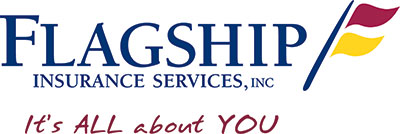Public Wi-Fi is everywhere — such as coffee shops, hotels and airports, just to name a few. But this convenience comes at a price.
Public hotspots are an easy way for cyber criminals to track your online movements and steal valuable information. How? The same features that make free Wi-Fi attractive to consumers also make them desirable to hackers. It requires no authentication to establish an internet connection. This presents an opportunity for cyber thieves to gain access to unsecured devices on the same network.
Just how scary is unsecured Wi-Fi? Hackers also can use it to distribute malware. If you share files across a public network, the hacker can plant infected software on your computer. And that’s not just on single device. Because office devices are all connected through a network, a hacker with access to one machine through public Wi-Fi can make the jump to access all of the machines and information stored on that company network.
Below and on the following pages are five tips to protect data when using public Wi-Fi, courtesy of Christopher Roach, managing director and national IT practice leader at CBIZ Risk & Advisory Services.
1. Use a VPN
The best solution to prevent your data from being hacked is to use a Virtual Private Network, called a VPN, which creates a network-within-a-network encrypted tunnel to protect your data. Because some networks may block VPN traffic, the VPN should be sent across HTTPS, a protocol for secure communication, which is generally allowed on most networks.
A VPN is a must-have when connecting to your business through an unsecured connection, such as Wi-Fi. Even if a hacker is able to gain access to your data, it will be encrypted. “Since hackers are after an easy target, they’ll likely discard stolen information rather than put it through a lengthly decruption process,” according to Kaspersky Lab, an internet security company.
The expense is less than you would think. According to PC Magazine, the cost of 10 top VPNs is less than $12 a month.
2. Make sure to use encrypted websites
If you are unable to connect to a VPN, instead protect yourself when surfing the web by only accessing websites that begin with “https.” These websites are considered more secure (that’s what the ‘S’ stands for) compared to those that begin with “http.”
In short, “http:” provides a secure connection over an insecure network.
3. Secure your computer
Whether you are in a private hotel room or public coffee shop, Roach recommends selecting the “public network” Wi-Fi option on your computer and not the “home network” or “work network” options. The public network option locks down the connection, ensuring your computer isn’t sharing any files or other sensitive data with machines on the local network. It’s also important to be up-to-date on security patches and use a firewall, such as the one built into most laptops.
Additionally, be aware of your surroundings. If you are working on your laptop in a public place, such as a hotel lobby, someone may be observing your computer screen behind you. If it’s not possible to sit with your laptop screen turned away from everyone else, periodically look around to ensure that no one is watching what you type. Norton, the antivirus and software security company, recommends to purchase a privacy screen, for use in public spaces.
4. Be careful when shopping
Never store your credit card, bank account numbers or business information on a website, or even in your device, while using public Wi-Fi.
This includes using Apple Pay, purchasing an item on Amazon or accessing your online banking account on public Wi-Fi. Use different passwords for your business accounts and personnel accounts.
5. Limit access to social media websites
Social media can be a necessary business tool, but logging into Facebook or LinkedIn and clicking on links from social media sites from a business device may leave your proprietary data at risk, Roach says.
It’s very easy for someone with malicious intent to infect your laptop by merely connecting with you on social media.
In addition, hold off on visiting any sites that require you to log in with a name and password, such as financial institutions. Save visiting those sites until you are on a secure, private network.
320.485.3800
